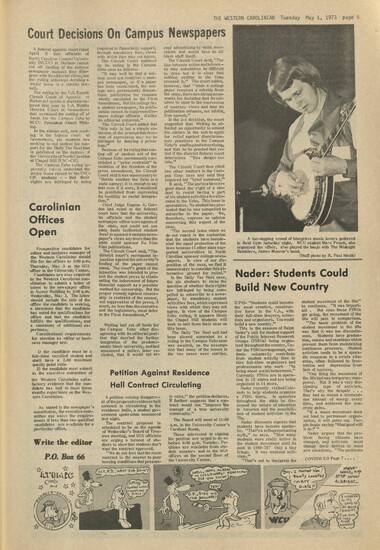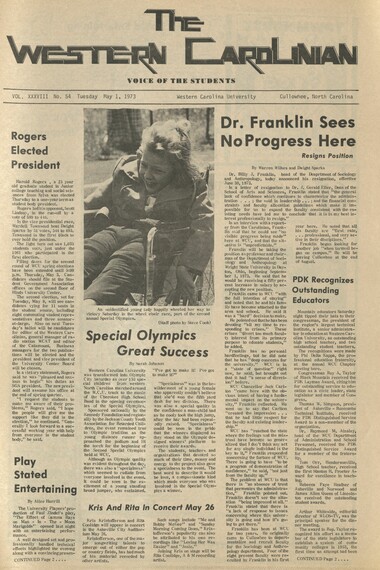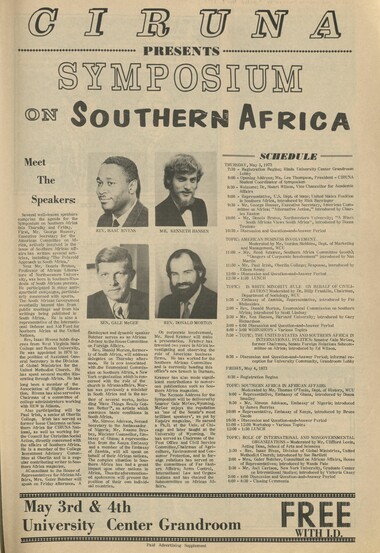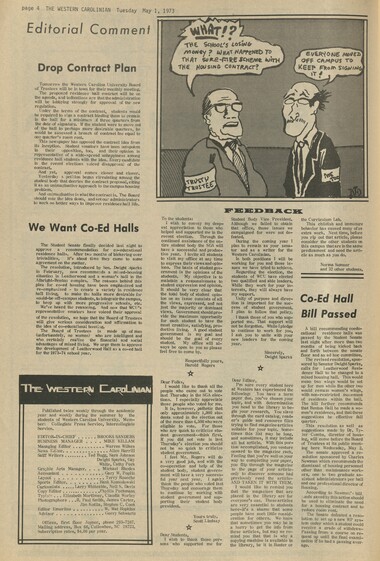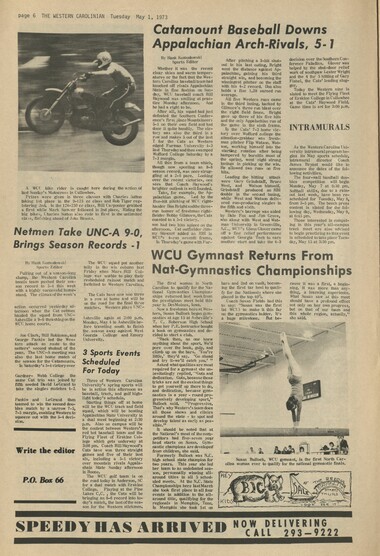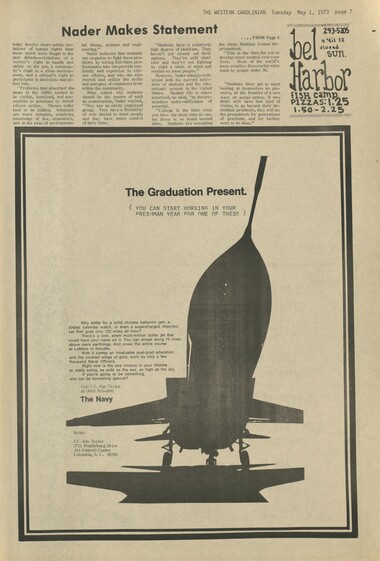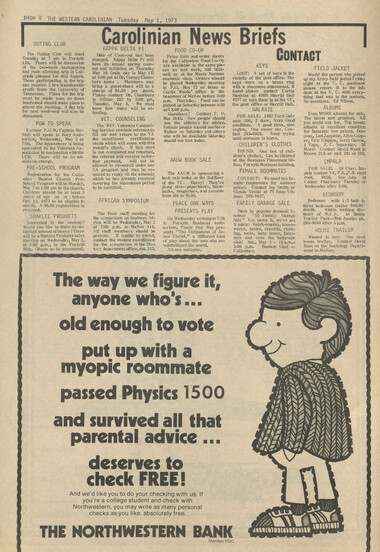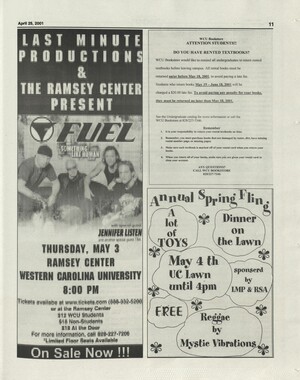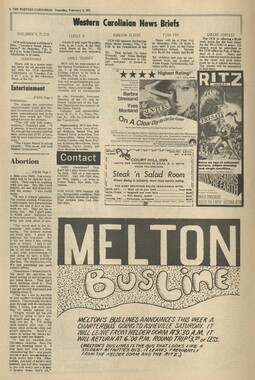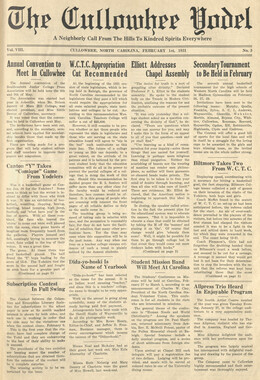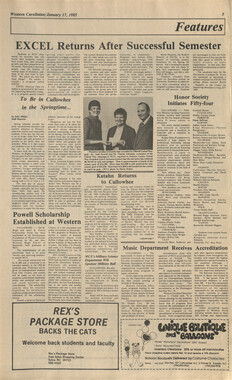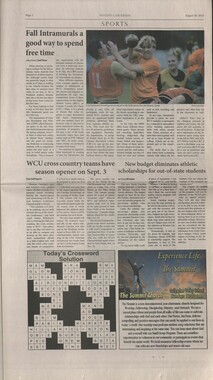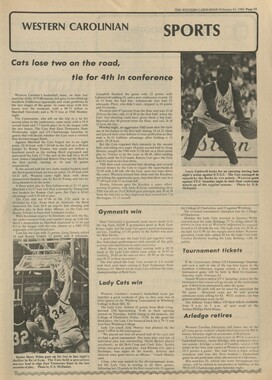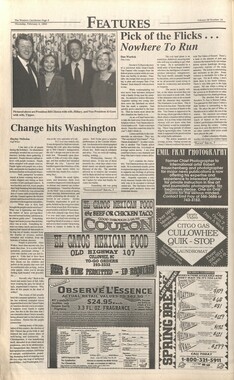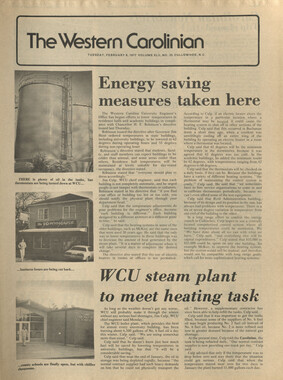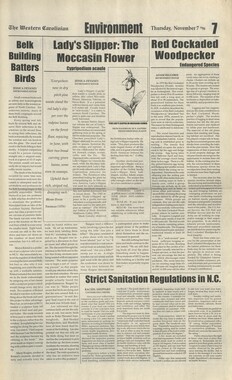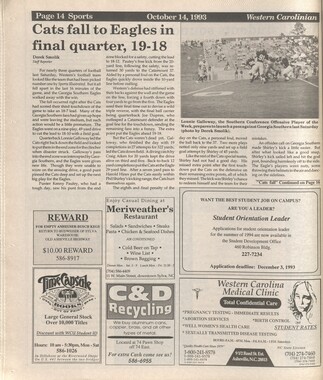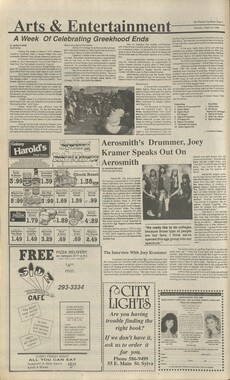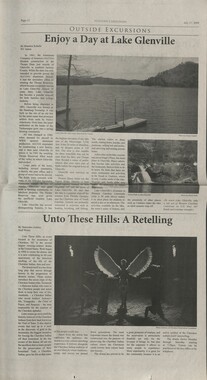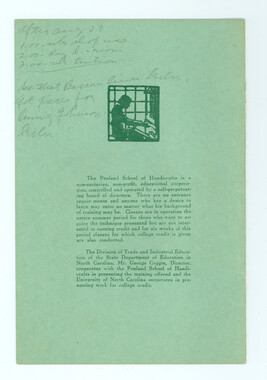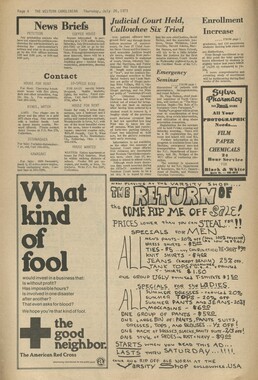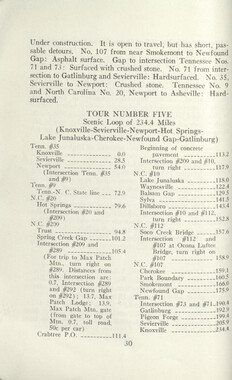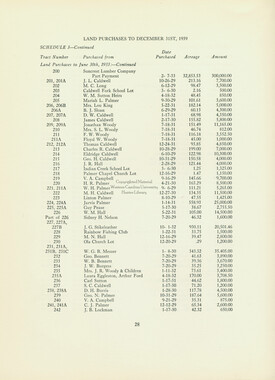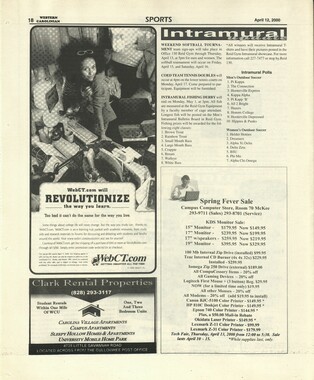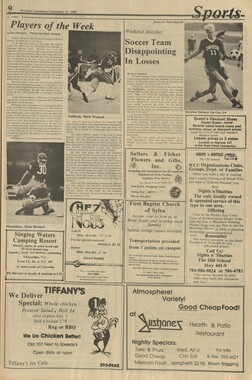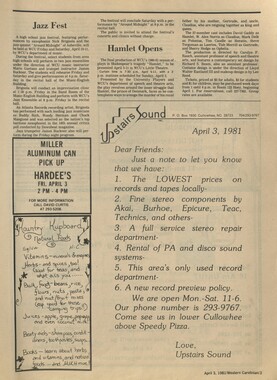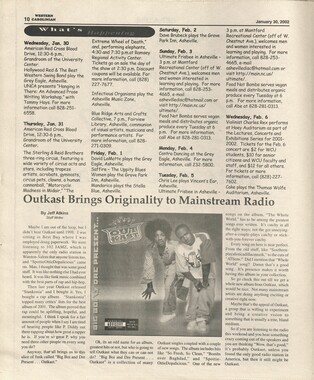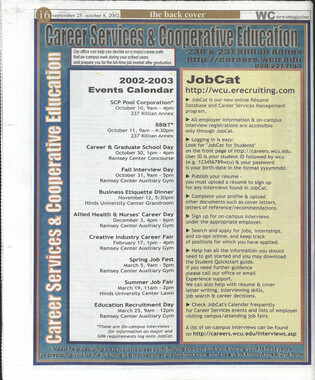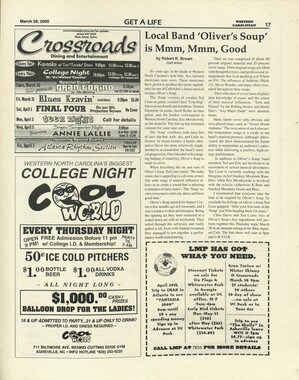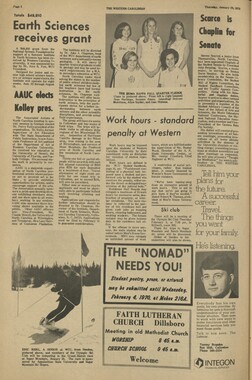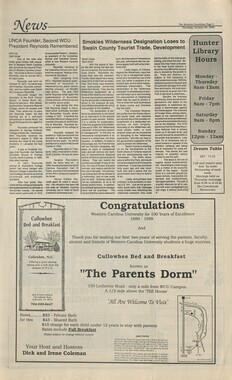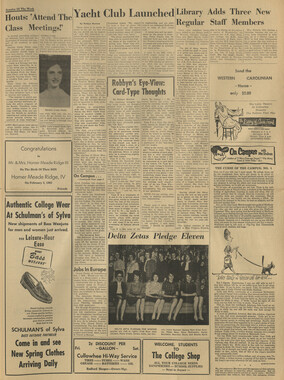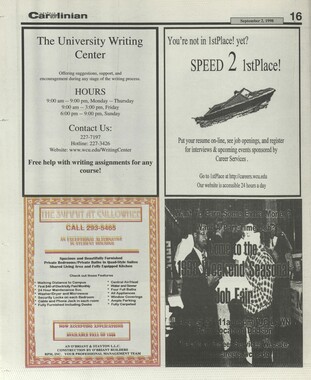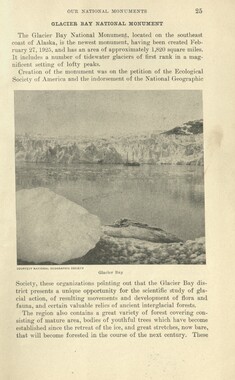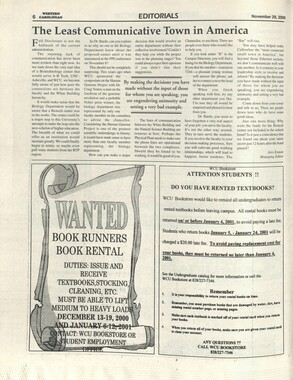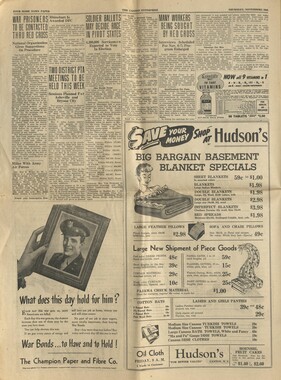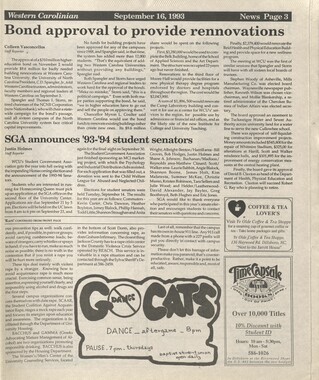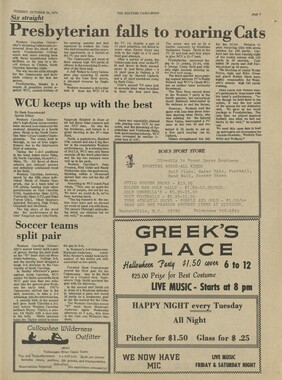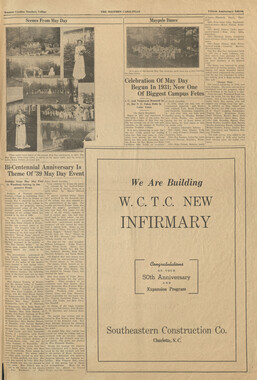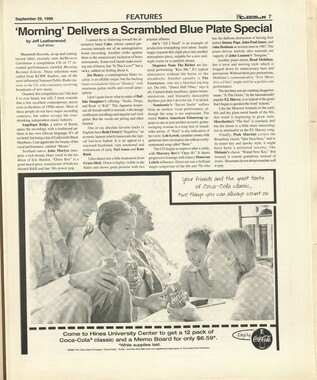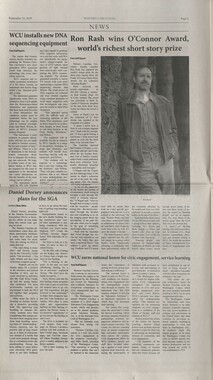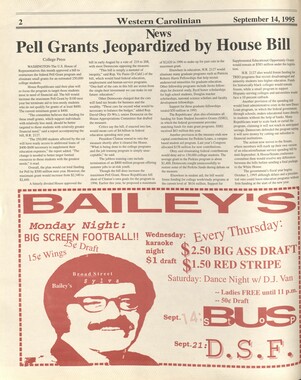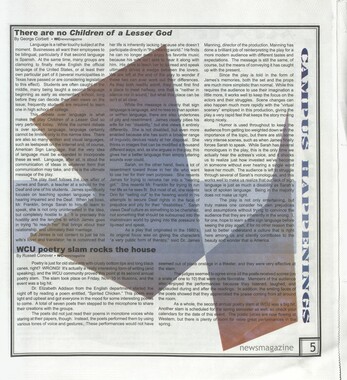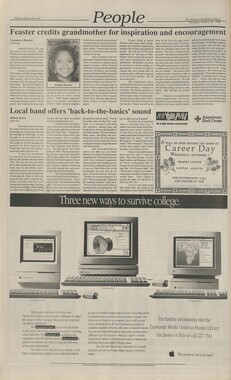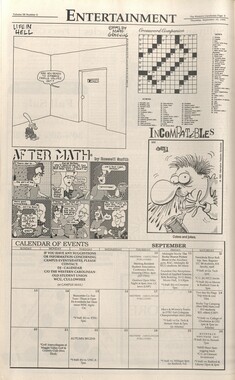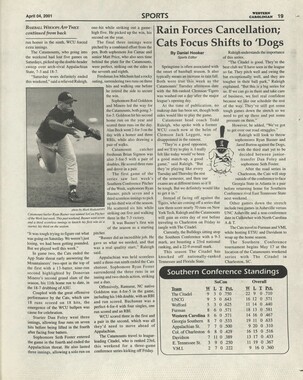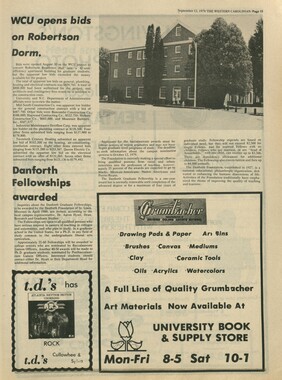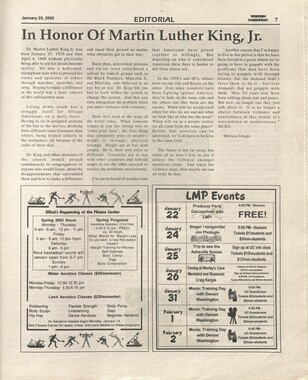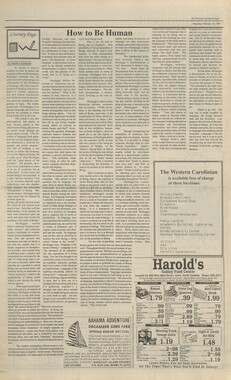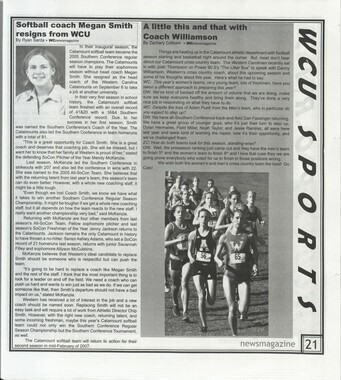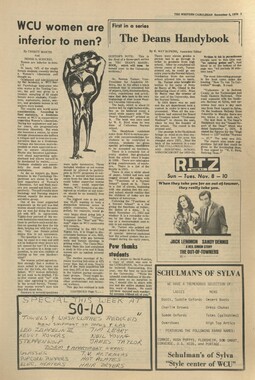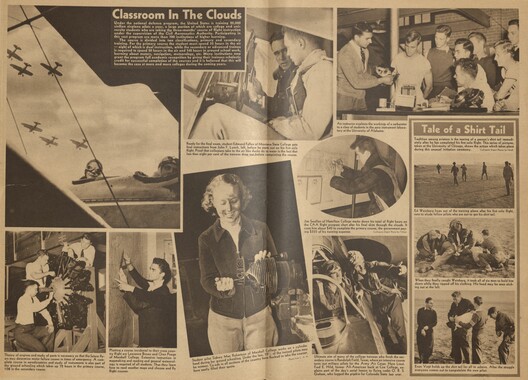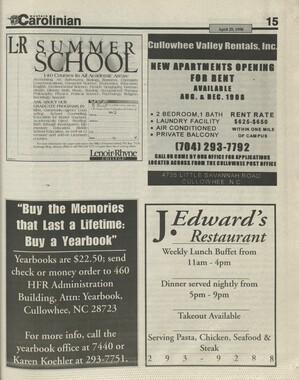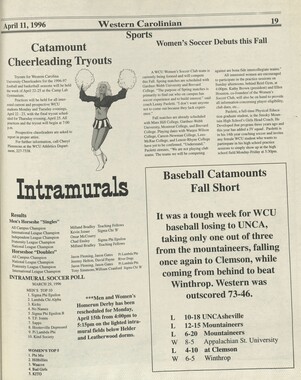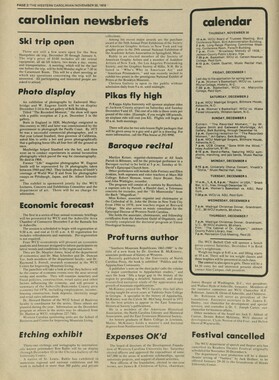Western Carolina University (20)
View all
- Canton Champion Fibre Company (2308)
- Cherokee Traditions (291)
- Civil War in Southern Appalachia (165)
- Craft Revival (1942)
- Great Smoky Mountains - A Park for America (2946)
- Highlights from Western Carolina University (430)
- Horace Kephart (941)
- Journeys Through Jackson (159)
- LGBTQIA+ Archive of Jackson County (85)
- Oral Histories of Western North Carolina (314)
- Picturing Appalachia (6873)
- Stories of Mountain Folk (413)
- Travel Western North Carolina (160)
- Western Carolina University Fine Art Museum Vitreograph Collection (129)
- Western Carolina University Herbarium (92)
- Western Carolina University: Making Memories (738)
- Western Carolina University Publications (2491)
- Western Carolina University Restricted Electronic Theses and Dissertations (146)
- Western North Carolina Regional Maps (71)
- World War II in Southern Appalachia (131)
University of North Carolina Asheville (6)
View all
- Allanstand Cottage Industries (62)
- Appalachian National Park Association (53)
- Bennett, Kelly, 1890-1974 (1463)
- Berry, Walter (76)
- Brasstown Carvers (40)
- Carver, George Washington, 1864?-1943 (26)
- Cathey, Joseph, 1803-1874 (1)
- Champion Fibre Company (233)
- Champion Paper and Fibre Company (297)
- Cherokee Indian Fair Association (16)
- Cherokee Language Program (22)
- Crowe, Amanda (40)
- Edmonston, Thomas Benton, 1842-1907 (7)
- Ensley, A. L. (Abraham Lincoln), 1865-1948 (275)
- Fromer, Irving Rhodes, 1913-1994 (70)
- George Butz (BFS 1907) (46)
- Goodrich, Frances Louisa (120)
- Grant, George Alexander, 1891-1964 (96)
- Heard, Marian Gladys (60)
- Kephart, Calvin, 1883-1969 (15)
- Kephart, Horace, 1862-1931 (313)
- Kephart, Laura, 1862-1954 (39)
- Laney, Gideon Thomas, 1889-1976 (439)
- Masa, George, 1881-1933 (61)
- McElhinney, William Julian, 1896-1953 (44)
- Niggli, Josephina, 1910-1983 (10)
- North Carolina Park Commission (105)
- Osborne, Kezia Stradley (9)
- Owens, Samuel Robert, 1918-1995 (11)
- Penland Weavers and Potters (36)
- Roberts, Vivienne (15)
- Roth, Albert, 1890-1974 (142)
- Schenck, Carl Alwin, 1868-1955 (1)
- Sherrill's Photography Studio (2565)
- Southern Highland Handicraft Guild (127)
- Southern Highlanders, Inc. (71)
- Stalcup, Jesse Bryson (46)
- Stearns, I. K. (213)
- Thompson, James Edward, 1880-1976 (226)
- United States. Indian Arts and Crafts Board (130)
- USFS (683)
- Vance, Zebulon Baird, 1830-1894 (1)
- Weaver, Zebulon, 1872-1948 (58)
- Western Carolina College (230)
- Western Carolina Teachers College (282)
- Western Carolina University (2008)
- Western Carolina University. Mountain Heritage Center (18)
- Whitman, Walt, 1819-1892 (10)
- Wilburn, Hiram Coleman, 1880-1967 (73)
- Williams, Isadora (3)
- Cain, Doreyl Ammons (0)
- Crittenden, Lorraine (0)
- Rhodes, Judy (0)
- Smith, Edward Clark (0)
- Appalachian Region, Southern (2569)
- Asheville (N.C.) (1923)
- Avery County (N.C.) (26)
- Blount County (Tenn.) (195)
- Buncombe County (N.C.) (1672)
- Cherokee County (N.C.) (283)
- Clay County (N.C.) (555)
- Graham County (N.C.) (236)
- Great Smoky Mountains National Park (N.C. and Tenn.) (519)
- Haywood County (N.C.) (3569)
- Henderson County (N.C.) (70)
- Jackson County (N.C.) (4912)
- Knox County (Tenn.) (35)
- Knoxville (Tenn.) (13)
- Lake Santeetlah (N.C.) (10)
- Macon County (N.C.) (420)
- Madison County (N.C.) (215)
- McDowell County (N.C.) (39)
- Mitchell County (N.C.) (132)
- Polk County (N.C.) (35)
- Qualla Boundary (982)
- Rutherford County (N.C.) (76)
- Swain County (N.C.) (2182)
- Transylvania County (N.C.) (270)
- Watauga County (N.C.) (12)
- Waynesville (N.C.) (86)
- Yancey County (N.C.) (72)
- Aerial Photographs (3)
- Aerial Views (60)
- Albums (books) (4)
- Articles (1)
- Artifacts (object Genre) (228)
- Bibliographies (1)
- Biography (general Genre) (2)
- Cards (information Artifacts) (38)
- Clippings (information Artifacts) (191)
- Copybooks (instructional Materials) (3)
- Crafts (art Genres) (622)
- Depictions (visual Works) (21)
- Design Drawings (1)
- Drawings (visual Works) (185)
- Envelopes (73)
- Exhibitions (events) (1)
- Facsimiles (reproductions) (1)
- Fiction (general Genre) (4)
- Financial Records (12)
- Fliers (printed Matter) (67)
- Glass Plate Negatives (381)
- Guidebooks (2)
- Internegatives (10)
- Interviews (815)
- Land Surveys (102)
- Letters (correspondence) (1013)
- Manuscripts (documents) (618)
- Maps (documents) (177)
- Memorandums (25)
- Minutes (administrative Records) (59)
- Negatives (photographs) (6090)
- Newsletters (1290)
- Newspapers (2)
- Notebooks (8)
- Occupation Currency (1)
- Paintings (visual Works) (1)
- Pen And Ink Drawings (1)
- Periodicals (193)
- Personal Narratives (10)
- Photographs (12976)
- Plans (maps) (1)
- Poetry (5)
- Portraits (4568)
- Postcards (329)
- Programs (documents) (181)
- Publications (documents) (2443)
- Questionnaires (65)
- Relief Prints (26)
- Sayings (literary Genre) (1)
- Scrapbooks (282)
- Sheet Music (2)
- Slides (photographs) (402)
- Songs (musical Compositions) (2)
- Sound Recordings (796)
- Specimens (92)
- Speeches (documents) (18)
- Tintypes (photographs) (8)
- Transcripts (322)
- Video Recordings (physical Artifacts) (23)
- Text Messages (0)
- A.L. Ensley Collection (275)
- Appalachian Industrial School Records (7)
- Appalachian National Park Association Records (336)
- Axley-Meroney Collection (2)
- Bayard Wootten Photograph Collection (20)
- Bethel Rural Community Organization Collection (7)
- Blumer Collection (5)
- C.W. Slagle Collection (20)
- Canton Area Historical Museum (2110)
- Carlos C. Campbell Collection (462)
- Cataloochee History Project (64)
- Cherokee Studies Collection (4)
- Daisy Dame Photograph Album (5)
- Daniel Boone VI Collection (1)
- Doris Ulmann Photograph Collection (112)
- Elizabeth H. Lasley Collection (1)
- Elizabeth Woolworth Szold Fleharty Collection (4)
- Frank Fry Collection (95)
- George Masa Collection (173)
- Gideon Laney Collection (452)
- Hazel Scarborough Collection (2)
- Hiram C. Wilburn Papers (28)
- Historic Photographs Collection (236)
- Horace Kephart Collection (861)
- Humbard Collection (33)
- Hunter and Weaver Families Collection (1)
- I. D. Blumenthal Collection (4)
- Isadora Williams Collection (4)
- Jesse Bryson Stalcup Collection (47)
- Jim Thompson Collection (224)
- John B. Battle Collection (7)
- John C. Campbell Folk School Records (80)
- John Parris Collection (6)
- Judaculla Rock project (2)
- Kelly Bennett Collection (1482)
- Love Family Papers (11)
- Major Wiley Parris Civil War Letters (3)
- Map Collection (12)
- McFee-Misemer Civil War Letters (34)
- Mountain Heritage Center Collection (4)
- Norburn - Robertson - Thomson Families Collection (44)
- Pauline Hood Collection (7)
- Pre-Guild Collection (2)
- Qualla Arts and Crafts Mutual Collection (12)
- R.A. Romanes Collection (681)
- Rosser H. Taylor Collection (1)
- Samuel Robert Owens Collection (94)
- Sara Madison Collection (144)
- Sherrill Studio Photo Collection (2558)
- Smoky Mountains Hiking Club Collection (616)
- Stories of Mountain Folk - Radio Programs (374)
- The Reporter, Western Carolina University (510)
- Venoy and Elizabeth Reed Collection (16)
- WCU Gender and Sexuality Oral History Project (32)
- WCU Mountain Heritage Center Oral Histories (25)
- WCU Oral History Collection - Mountain People, Mountain Lives (71)
- WCU Students Newspapers Collection (1923)
- Western North Carolina Tomorrow Black Oral History Project (69)
- William Williams Stringfield Collection (2)
- Zebulon Weaver Collection (109)
- African Americans (390)
- Appalachian Trail (35)
- Artisans (521)
- Cherokee art (84)
- Cherokee artists -- North Carolina (10)
- Cherokee language (21)
- Cherokee pottery (101)
- Cherokee women (208)
- Church buildings (189)
- Civilian Conservation Corps (U.S.) (111)
- College student newspapers and periodicals (2012)
- Dams (107)
- Dance (1023)
- Education (222)
- Floods (61)
- Folk music (1015)
- Forced removal, 1813-1903 (2)
- Forest conservation (220)
- Forests and forestry (1184)
- Gender nonconformity (4)
- Great Smoky Mountains National Park (N.C. and Tenn.) (181)
- Hunting (45)
- Landscape photography (25)
- Logging (119)
- Maps (83)
- Mines and mineral resources (8)
- North Carolina -- Maps (18)
- Paper industry (38)
- Postcards (255)
- Pottery (135)
- Railroad trains (72)
- Rural electrification -- North Carolina, Western (3)
- School integration -- Southern States (2)
- Segregation -- North Carolina, Western (5)
- Slavery (5)
- Sports (452)
- Storytelling (243)
- Waterfalls -- Great Smoky Mountains (N.C. and Tenn.) (66)
- Weaving -- Appalachian Region, Southern (280)
- Wood-carving -- Appalachian Region, Southern (328)
- World War, 1939-1945 (173)
Western Carolinian Volume 38 Number 54
Item
Item’s are ‘child’ level descriptions to ‘parent’ objects, (e.g. one page of a whole book).
-
-
THE WESTERN CAROLINIAN Tuesday May 1, 1973 page 5 Court Decisions On Campus Newspapers A federal appeals court ruled April 11 that officials of North Carolina Central University (NCCU) at Durham cannot cut off funding of the campus newspaper because they disagree' w ith its editorial views, but the ruling sidesteps deciding a major issue In a similar lawsuit, The ruling by the U.S. Fourth Circuit Court of Appeals -it Richin md upsets a decision entered last year in U.S. Middle District Court at Greensboro that sustained the cutting off of funds for the Campus Echo by NCCU President Albert Whiting, In the simlar suit, now pending in the federal court at Greensboro, six students are seeking to end student fee support for the Daily Tar Heel that is published on the campus of the Universitv of North Carolina at Chapel Hill (UNC-CH), The Campus Echo ruling apparently 1 saves undecided the major issue raised by the UNC- CH students - - that their rights are infringed by being Carolinian Offices Open Prospective candidates for editor and business manager of the Western Carolinian should file for the offices by 5:00 p.m. Thursday, May 3 at the SGA office in the University Center. Candidates are also required by the Western Carolinian constitution to submit a letter of intent to the newspaper office in Joyner Building by 5:00 p.m. Wednesday, May 2. The letter should include the title of the office the candidate is seeking, a statement that the candidate has noted the qualifications for office and that the candidate fulfills the qualifications, and a statement of additional experience. Constitutional requirements for election as editor or business manager are: 1) the candidate must be a full-time enrolled student and shall have a 2.00 minimum quality point ratio 2) the candidate must submit to the executive committee of the Western Carolinian satisfactory evidence that the candidate has had at least three months experience on the Western Carolinian. As stated in the newspaper's constitution, the executive committee can waive the requirements if less than two qualified candidates are available for a particular office. Write the editor P.O. Box 66 required to financially support, through mandatory fees, views with which they may tot agree. The Circuit Court summed up its ruling In the Campus Echo case as follows: "It may well be that a college need not establish a campus newspaper, or if a paper has been established, the college may permanently discontinue publication for reasons wholly unrelated to the First Amendment. But if a college !ia -> a student newspaper, its publication cannot be suppressed because college officals dislike its editorial comment." The Circuit Court added that "this rule is but a simple extension of the precept that freedom of expression may no', be infringed by denying a privilege." Because of its rulingthat cutting off of student aid of the Campus Echo permanently constituted a "prior restraint" in violation of the freedom of the press amendment, the Circuit Court said it was unnecessary to "decide whether the Echo is a state agency; it is enough to say that even if it were, it would not be prohibited from expressing its hostility to racial integration," Chief Judge Eugene A. Gordon had ruled in the federal court here that the university, its officials and the student newspaper editor were agents of the state, and could not use state funds (collected student fees) to sponsor a campus newspaper's views any more than the state could sponsor Ku Klux Klan publications. The Circuit Court said, "The district court's permanent injunction against the university's funding of the paper cannot stand. The court's grant of the injunction was intended to protect the student press by eliminating the inducement of future financial support as a possible method for censorship. But the proper remedy against censorship is restraint of the censor, not suppression of the press. A court, no less than the executive and the legislature, must defer to the First Amendment." Whiting had cut off funds for the Campus Echo after disagreeing with its editorial position that decried the further integration of the predominantly black university, and had announced a policy, later re- cinded, that it would not ac cept advertising by white merchants and would have an all black staff itself. The Circuit Court said, "The line between action and advocacy may sometimes be difficult to draw but it is clear that nothing written in the Echo crossed it." The court added, however, that "when a college paper receives a subsidy from the state, there are strong arguments for insisting that its columns be open to the expression of contrary views and that its publication enhance, not inhibit, free speech." In the 2-1 decision, the court suggested that Whiting be afforded an opportunity to amend his claims in the suit to apply for relief against discriminatory practices in the Campus Echo's staffingandadvertising, and that he be granted that relief if the district federal court determines "this danger exists." The Circuit Court then cited two other matters in the Campus Echo case and said they required but "brief comment." It said, "The parties have argued about the right of a student to resist having a part of his student activities fee allocated to the Echo. This issue is speculative. No student has protested that he was compelled to subscribe to the paper. We, therefore, express no opinion concerning this aspect of the case. "The second issue which we do not reach is the contention that the students have beende- nied the equal protection of the laws because 11 other state supported universities in North Carolina sponsor college newspapers. In view of our disposition of the case, we find it unnecessary to consider this alternative ground for relief." In the Daily Tar Heel case, the six students to raise the question of whether their rights are infringed by being compelled to subscribe to a newspaper, by mandatory student activities fees, which expresses views with which they may not agree. In view of the Campus Echo ruling, it appears likely the Chapel Hill students will seek to nail down their case on this issue. The Daily Tar Heel suit had been slowed somewhat as a ruling in the Campus Echo case was awaited, on the assumption that many of the issues in the two cases were similar. Petition Against Residence Hall Contract Circulating A petition voicing disapproval of the proposed residence hall contract is circulating in the residence halls, a student government spokesman announced last night. The contract proposal is scheduled to be on the agenda of Wednesday's Board of Trustees meeting, and SGA officials are urging a turnout of students to show that students don't want the contract approved. "We do not feel that the room contract is the answer to poor housing conditions that present ly exist," the petition declares. If further suggests that a contract would not "improve Ihe concept of a true university community." The Board will meet at 11:00 a,m, in the University Center's Cardinal Room, Those interested in signing the petition are urged to do so before 6:00 p.m, Tuesday. Petitions are available from student senators and at the SGA offices on the second floor of the University Center. A toe-tapping crowd of bluegrass music lovers gathered in Reid Gym Saturday night. WCU student Marc Pruett, who organized the affair, also played the banjo with The Midnight Ramblers, James Monroe's band. (Staff photo by R. Paul Smith) Nader: Students Could Build New Country (CPS)- "Students could become the most creative, constructive force in the U.S., with their full-time lawyers, scientists and organizers. \rou could build a new country." This is the essence of Ralph Nader's call for student support of the Public Interest Research Groups (PIRGs) being organized throughout the country. Under the PIRG arrangement, students voluntarily contribute from student activity fees to hire full-time organizers and professionals who work "to bring about social betterment," Currently PIRGs are in operation in 16 states and are being organized in 14 more. Nader recently visited Colorado to help students organize a PIRG there. In speeches throughout the state he discussed the nature of education in America and the possibilities of student activism in the 70s. Nader discounts reports that students have become apathetic. "That'sa self-perpetuating myth," he says. "How many students were really active in the student movement until its peak in 1969-70? Only a tiny fringe. It was weekend activism." "That's not to denigrate the ft & romix , Q And fy. ft student movement of the 60s" he continues, "It was important . But once these PIRGs get going, the movement of the 60s will pale in comparison. "The basic problem of the student movement in the 60s was that it was too discontinuous. Students have graduation, exams and vacations which prevent them from maintaining continuous pressure. Student activism tends to be a sporadic response to a crisis situation, often followed by frustration and depression from lack of success. "One thing the movement of the 60s had was temporary manpower. But it was a very dissipating type of activism. That's why the despair , . . they had to mount a tremendous amount of energy every time, and achieved few concrete gains. "If a mass movement does not lead to permanent organization, it will peter out. People begin saying 'What good will it do?' " Nader argues that the problem facing citizens have changed, and activists must change their tactics to meet new situations, "The problems CONTINUED Page 7 . . . . WHIIC, H'V* AT^f moont
Object
Object’s are ‘parent’ level descriptions to ‘children’ items, (e.g. a book with pages).
-
The Western Carolinian is Western Carolina University's student-run newspaper. The paper was published as the Cullowhee Yodel from 1924 to 1931 before changing its name to The Western Carolinian in 1933.
-
